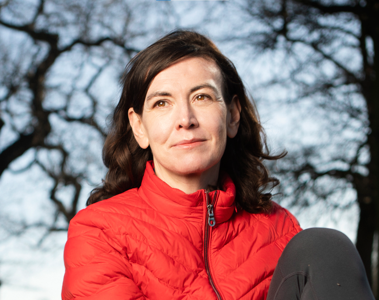
Laura Donnelly
The Telegraph/Sunday Telegraph
Front page revelations revealed plans for the second lockdown, exposed flawed data behind key lockdown decisions, and reliance on out-of-date intelligence. As Britain entered 2021, her investigations shifted focus: revealing fundamental changes in the workings of the NHS, under cover of covid, some of which were to have fatal consequences. Laura’s scoops included a splash revealing central NHS instructions to embed a permanent system of “total triage” so that patients could no longer see a GP face to face, without going through remote consultations. The outpouring of public concern over the issue - reflected in the Telegraph’s own postbag, as well as more than 200,000 page views, and thousands of comments - saw one of the most astonishing reversals in policy, with health officials ordering a U-turn in the instructions the very next day. The issue continued to resonate with the public, and was brought up in the Commons repeatedly, with Laura’s coverage exposing the dangers of a system which relied so heavily on the elderly to be tech savvy, with 75-year-olds making 100 calls in order to help older neighbours secure an appointment with a GP. The coverage forced the intervention of the Prime Minister by September, and further guidance establishing a patient’s right to see their GP in person, resulting in a sharp rise in the proportion of consultations taking place face-to-face. The growing public concern also provided an opportunity for Labour, drawing up its own pledges for better patient access. Other scoops showed a substantial fall in GP working hours, bringing the average week to 3 days, at a time when earnings rose by almost a fifth. Laura continued to probe the disastrous consequences of covid testing failures, while bringing in major scoops which brought hope - the first jabs, and later the acceleration of the vaccine rollout in order to secure “freedom day”. In a series of essays, Laura explored the collateral damage caused both by the pandemic, and by NHS response to the crisis - it also critiqued in devastating detail the pre-existing weaknesses in Britain’s systems, and poor record for cancer survival. Laura’s unrivalled knowledge of the field meant she was also able to find the chinks of light on the horizon, probing some of the key scientific advances which would mean a great leap forward in diagnosis of the most deadly of diseases. The beauty of health journalism - at it’s best - lies in its breadth and ability to shift the agenda. Exclusive stories revealed a black market in HRT, as shortages grew, as well as a landmark decision by watchdogs to make some forms of therapy available over the counter. She also broke a key story on abortion - Government plans to abolish a system of home terminations - which prompted widespread outrage from medics, women’s groups, and MPs, resulting in the plans being overthrown in the Commons.